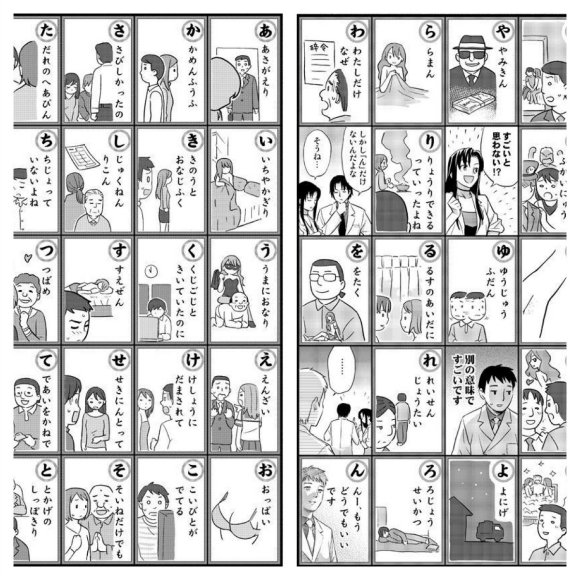
If you’ve ever entertained the notion of studying Japanese, at some point you’ll find yourself faced with the task of learning the language’s intricate writing system. The good news is that as long as you can write the strictly phonetic script sets, hiragana and katakana, and don’t mind everything you write looking like it was written by a first grader, you don’t necessarily have to know kanji.
But whether you go on to become a kanji master or not, most beginners usually start out learning hiragana first. In the past we introduced a number of handy Japanese study resources, but unfortunately we didn’t include anything for basic hiragana writing skills. So today we’d like to make-up for that by introducing this humorous hiragana study chart that has Japanese users on Twitter chuckling and doing some serious self-reflection.
sinrinet is the official Twitter account of the Yuu Mental Clinics, a group of mental health clinics based in Tokyo which specialize in treating different mental and stress-related issues through manga. With a number of accompanying manga-style books already under their belt, the clinic’s most recent offerings are these hiragana charts with the message:
▼ “This is a Hiragana Chart. Children and foreigners, please use it to practice. And if you’ve checked off five or more, you need to take special care!”
【あいうえお表】です。お子様や、外国の方のひらがな学習にお使いください。5コ以上体験済みの方は要注意です。 pic.twitter.com/f7BjSP3Ez3
— ゆうきゆう❤️マンガで心療内科 (@sinrinet) July 15, 2015
While we’ve reported on studies about how anime and manga are great Japanese study tools before, I don’t think this is the kind of reading material experts had in mind. This hiragana chart isn’t like anything you’ll find in your Japanese 101 textbook.
Although we’re not sure how many Japanese have actually shown the chart to their elementary school-aged children or random foreigners on the street, it looks like most users are just amused trying to see how few or how many of the items they end up checking off. So in a way you could say the chart also promotes the kind of mental well-being Yuu Mental Clinics are popular for, if you go by the saying that laughter is the best medicine.
For those of you with a good amount of Japanese under your belt, the original set could also double as a dirty version of the card game karuta and really spice up your next party, unless of course your next party happens to be a work-related one. In that case it’s probably better to hold off, as we wouldn’t want you to end up like the guy on “wa“.
However, for those of you not quite that fluent in Japanese yet, here’s an easier-to-read version that will hopefully teach you some colorful new Japanese vocabulary along with the basic hiragana alphabet:
Of course, we hope none of our readers ever find themselves actually having to use any of these phrases in real life. Or even worse, we hope none of you checked off more than five boxes. If you did, you might want to consider making an appointment at Yuu Mental Clinic asap!
And as a bonus for those of you considering dipping your toes in the hiragana study water, here’s the romaji both each images of the chart as read from right to left, top to bottom :
あ(a) asagaeri, い(i) ichiyakagiri, う(u) uma ni onari, え(e) enzai, お(o) oppai
か(ka) kamen fuufu, き(ki) kinou to onaji fuku, く(ku) kuji kara goji to kiita no ni, け(ke) kesshou ni damasarete, こ(ko) koibito ga deteru
さ(sa) sabishikatta no, し(shi)* jyukunen rikon – *used as じ/ji, す(su) suezen, せ(se) sekinin totte, そ(so) soine dake demo
た(ta)* dare no heapin – *used as だ/da, ち(chi) chijyo tte inai to ne, つ(tsu) tsubame, て(te)* deai wo kanede – used as で/de, と(to) towage no shippokiri
な(na) nakiotoshi, に(ni) niito, ぬ(nu) nukiuchi kitaku, ね(ne) netafuri, の(no) nonda ikioi
は(ha)* basuto – used as ば/ba, ひ(hi) hirou kossetsu, ふ(fu) fechi, へ(he) hentai, ほ(ho) hoshounin
ま(ma) maotoko, み(mi) minji fukainyuu, む(mu) mudage, め(me) me wo samase,も(mo) mousou
や(ya) yamikin, ゆ(yu) yuujyou fudan, よ(yo) yonige
ら(ra) raman – from French, l’amante, り(ri) ryouri dekiru tte itta yo ne, る(ru) rusu no aida ni, れ(re) reisen joutai, ろ rojyou seikatsu
わ(wa) watashi dake naze, を(wo, pronounced as o) otaku, ん(n) nn, mou dou demo ii desu
Source: Twitter/@sinrinet via Wadai no Gazou
Top/insert images: Twitter/@sinrinet (edited by RocketNews24)
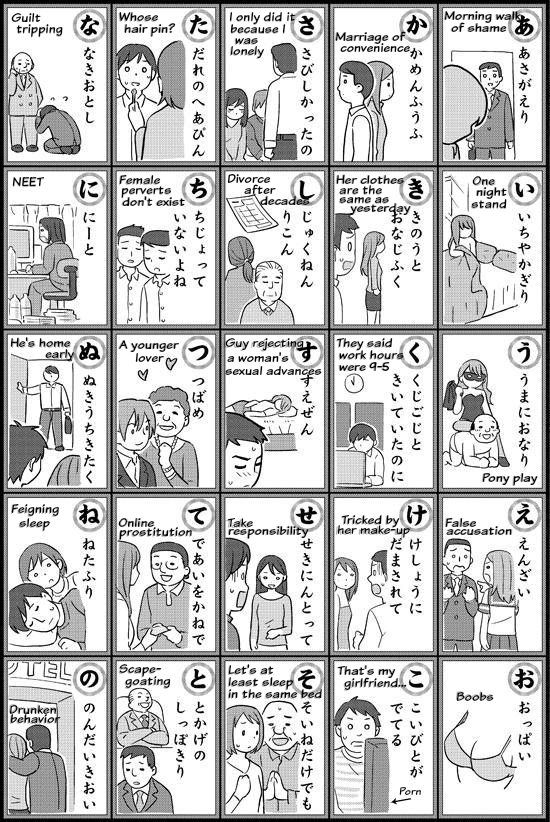
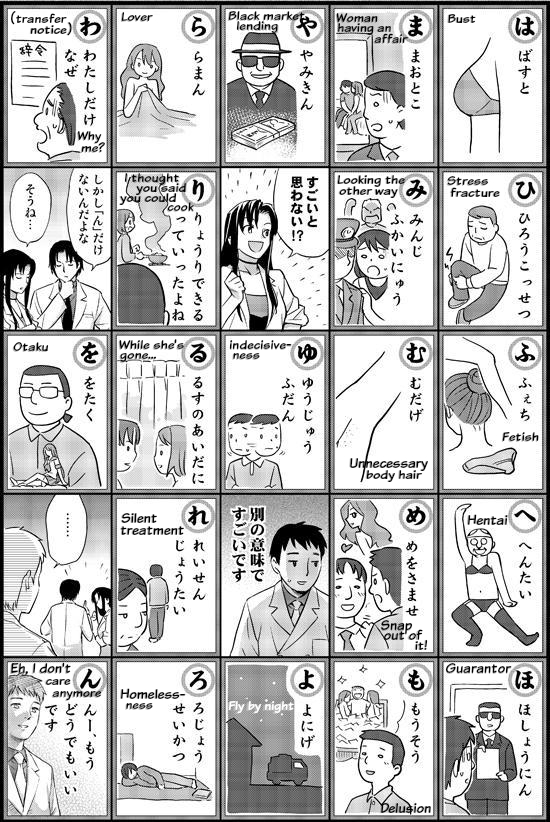
 Japanese writing system gets turned into handsome anime men with Hiragana Boys video game
Japanese writing system gets turned into handsome anime men with Hiragana Boys video game Japanese first grader wins math contest by quantifying “which hiragana are the hardest to write”
Japanese first grader wins math contest by quantifying “which hiragana are the hardest to write” The surprising reasons why some hiragana aren’t allowed to be used on Japanese license plates
The surprising reasons why some hiragana aren’t allowed to be used on Japanese license plates Nintendo’s employee recruiting pamphlet is a full-color Super Mario storybook【Photos】
Nintendo’s employee recruiting pamphlet is a full-color Super Mario storybook【Photos】 Learn Japanese through ridiculous manga: A Tick on Titan 【Episode #3】
Learn Japanese through ridiculous manga: A Tick on Titan 【Episode #3】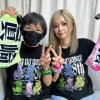 Our reporter takes her 71-year-old mother to a visual kei concert for the first time
Our reporter takes her 71-year-old mother to a visual kei concert for the first time Disney princesses get official manga makeovers for Manga Princess Cafe opening in Tokyo
Disney princesses get official manga makeovers for Manga Princess Cafe opening in Tokyo Is the new Shinkansen Train Desk ticket worth it?
Is the new Shinkansen Train Desk ticket worth it?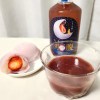 We tried Japan’s Strawberry Daifuku? liqueur, one of three dessert-themed liqueurs
We tried Japan’s Strawberry Daifuku? liqueur, one of three dessert-themed liqueurs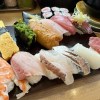 Randomly running into a great sushi lunch like this is one of the best things about eating in Tokyo
Randomly running into a great sushi lunch like this is one of the best things about eating in Tokyo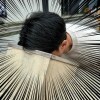 We go looking for the free kaoyu hot spring facebath of onsen town Kusatsu【Photos】
We go looking for the free kaoyu hot spring facebath of onsen town Kusatsu【Photos】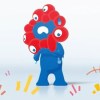 Osaka’s creepy cute mascot speaks for first time, adds more fuel the creepy OR cute debate【Video】
Osaka’s creepy cute mascot speaks for first time, adds more fuel the creepy OR cute debate【Video】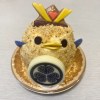 Samurai chick pudding cake is Japan’s newest hard-to-buy, delicious-to-eat treat【Taste test】
Samurai chick pudding cake is Japan’s newest hard-to-buy, delicious-to-eat treat【Taste test】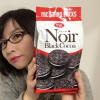 Japan’s new imitation Oreos are here, but how do they compare to the made-in-China real deal?
Japan’s new imitation Oreos are here, but how do they compare to the made-in-China real deal? Hey, Japanese taxi driver! Take us to your favorite restaurant in Tsuruga City!
Hey, Japanese taxi driver! Take us to your favorite restaurant in Tsuruga City! We try out “Chan Ramen”, an underground type of ramen popular in the ramen community
We try out “Chan Ramen”, an underground type of ramen popular in the ramen community New Studio Ghibli bedding sets are cool in all senses of the word
New Studio Ghibli bedding sets are cool in all senses of the word Our Japanese reporter visits Costco in the U.S., finds super American and very Japanese things
Our Japanese reporter visits Costco in the U.S., finds super American and very Japanese things Foreign English teachers in Japan pick their favorite Japanese-language phrases【Survey】
Foreign English teachers in Japan pick their favorite Japanese-language phrases【Survey】 New Pokémon cakes let you eat your way through Pikachu and all the Eevee evolutions
New Pokémon cakes let you eat your way through Pikachu and all the Eevee evolutions There’s a park inside Japan where you can also see Japan inside the park
There’s a park inside Japan where you can also see Japan inside the park Japanese convenience store packs a whole bento into an onigiri rice ball
Japanese convenience store packs a whole bento into an onigiri rice ball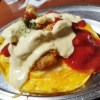 Hanton rice — a delicious regional food even most Japanese people don’t know about, but more should
Hanton rice — a delicious regional food even most Japanese people don’t know about, but more should Final Fantasy, Kingdom Hearts, and Dragon Quest pet product line announced by Square Enix
Final Fantasy, Kingdom Hearts, and Dragon Quest pet product line announced by Square Enix Studio Ghibli releases Kiki’s Delivery Service chocolate cake pouches in Japan
Studio Ghibli releases Kiki’s Delivery Service chocolate cake pouches in Japan Japan’s bone-breaking and record-breaking roller coaster is permanently shutting down
Japan’s bone-breaking and record-breaking roller coaster is permanently shutting down New definition of “Japanese whiskey” goes into effect to prevent fakes from fooling overseas buyers
New definition of “Japanese whiskey” goes into effect to prevent fakes from fooling overseas buyers Foreign passenger shoves conductor on one of the last full runs for Japan’s Thunderbird train
Foreign passenger shoves conductor on one of the last full runs for Japan’s Thunderbird train Kyoto bans tourists from geisha alleys in Gion, with fines for those who don’t follow rules
Kyoto bans tourists from geisha alleys in Gion, with fines for those who don’t follow rules Studio Ghibli unveils Mother’s Day gift set that captures the love in My Neighbour Totoro
Studio Ghibli unveils Mother’s Day gift set that captures the love in My Neighbour Totoro Domino’s Japan now sells…pizza ears?
Domino’s Japan now sells…pizza ears?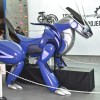 Toyota built a life-sized Miraidon Pokémon and are letting people test drive it this weekend
Toyota built a life-sized Miraidon Pokémon and are letting people test drive it this weekend New Japanese KitKat flavour stars Sanrio characters, including Hello Kitty
New Japanese KitKat flavour stars Sanrio characters, including Hello Kitty Sales of Japan’s most convenient train ticket/shopping payment cards suspended indefinitely
Sales of Japan’s most convenient train ticket/shopping payment cards suspended indefinitely Sold-out Studio Ghibli desktop humidifiers are back so Totoro can help you through the dry season
Sold-out Studio Ghibli desktop humidifiers are back so Totoro can help you through the dry season Japanese government to make first change to romanization spelling rules since the 1950s
Japanese government to make first change to romanization spelling rules since the 1950s Ghibli founders Toshio Suzuki and Hayao Miyazaki contribute to Japanese whisky Totoro label design
Ghibli founders Toshio Suzuki and Hayao Miyazaki contribute to Japanese whisky Totoro label design Doraemon found buried at sea as scene from 1993 anime becomes real life【Photos】
Doraemon found buried at sea as scene from 1993 anime becomes real life【Photos】 Tokyo’s most famous Starbucks is closed
Tokyo’s most famous Starbucks is closed One Piece characters’ nationalities revealed, but fans have mixed opinions
One Piece characters’ nationalities revealed, but fans have mixed opinions We asked a Uniqlo employee what four things we should buy and their suggestions didn’t disappoint
We asked a Uniqlo employee what four things we should buy and their suggestions didn’t disappoint Princesses, fruits, and blacksmiths: Study reveals the 30 most unusual family names in Japan
Princesses, fruits, and blacksmiths: Study reveals the 30 most unusual family names in Japan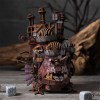 Studio Ghibli’s new desktop Howl’s Moving Castle will take your stationery on an adventure
Studio Ghibli’s new desktop Howl’s Moving Castle will take your stationery on an adventure Video of each Japanese hiragana getting “measured up” is oddly cute and satisfying【Video】
Video of each Japanese hiragana getting “measured up” is oddly cute and satisfying【Video】 Learn Japanese through ridiculous manga: Narutoe 【Episode #2】
Learn Japanese through ridiculous manga: Narutoe 【Episode #2】 Textbook gives Chinese otaku Japanese lessons with a side of anime girls and dialogue
Textbook gives Chinese otaku Japanese lessons with a side of anime girls and dialogue Learn Japanese through ridiculous manga: Death Vote 【Episode #6】
Learn Japanese through ridiculous manga: Death Vote 【Episode #6】 Struggling with Japanese? Let Tako lend you a hand…or five
Struggling with Japanese? Let Tako lend you a hand…or five “We wasted so much time in English class” — Japanese Twitter user points out major teaching flaw
“We wasted so much time in English class” — Japanese Twitter user points out major teaching flaw Spice up boring Japanese classroom vocab with the cooler words in this cute video【Video】
Spice up boring Japanese classroom vocab with the cooler words in this cute video【Video】 Only one out of five Japanese people can pronounce these hiragana — can you?
Only one out of five Japanese people can pronounce these hiragana — can you? You can send email from payphones in Japan?!? We try the technology trick that shocked the nation
You can send email from payphones in Japan?!? We try the technology trick that shocked the nation In Japan, you can now get issued an official license plate with adorable cat prints on it
In Japan, you can now get issued an official license plate with adorable cat prints on it Yakiniku sneakers from Japan let you wear your love for meat on your feet
Yakiniku sneakers from Japan let you wear your love for meat on your feet Kitty-chan fans in Taiwan can now give birth at this Hello Kitty maternity clinic
Kitty-chan fans in Taiwan can now give birth at this Hello Kitty maternity clinic PlayStation VR user finds, shares ways of peeping at panties in schoolgirl tutor game【Video】
PlayStation VR user finds, shares ways of peeping at panties in schoolgirl tutor game【Video】 Akiba Dental Clinic: The Akihabara dentist where a moe maid in cosplay cleans your teeth
Akiba Dental Clinic: The Akihabara dentist where a moe maid in cosplay cleans your teeth Part-maid cafe, part-dentist’s office? Akiba Dental Clinic opens in Tokyo【Photos】
Part-maid cafe, part-dentist’s office? Akiba Dental Clinic opens in Tokyo【Photos】 The awesome artwork hiding in the Japanese word processor: sakura, dragons, and sake
The awesome artwork hiding in the Japanese word processor: sakura, dragons, and sake
Leave a Reply